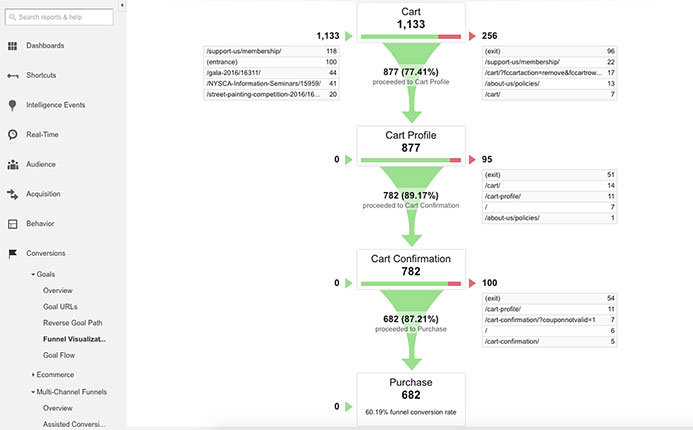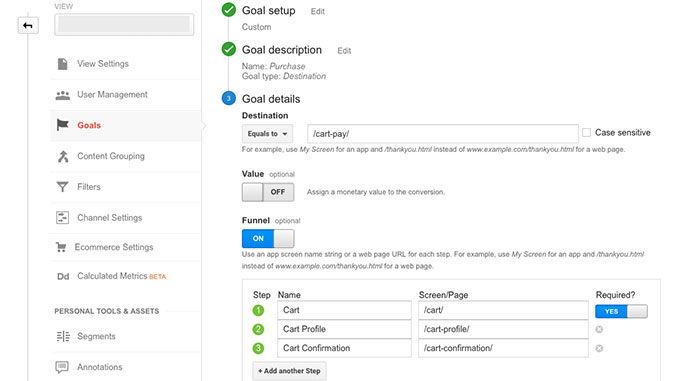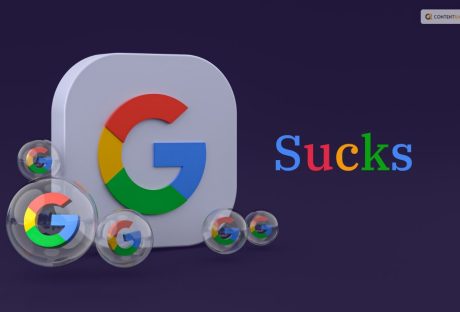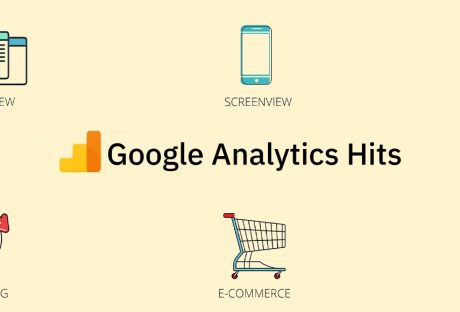What report indicates where users start or exit the conversion funnel? Actually, the conversion funnel is a phrase used in e-commerce to describe the journey a consumer takes via a search engine or internet advertising, converting to a sale, or navigating an e-commerce website.
This is exactly the way to visualize the flow and conversion path of potential customers into paying customers. These visitors can be generated via a number of methods such as cold outreach, paid ads, social media, content marketing, and SEO.
Contents
A Simple Guide To Conversion Funnel

https://www.megalytic.com/blog/understanding-the-funnel-visualization-in-google-analytics
Funnels help us to view the process easily by provisioning us a visual representation of the conversion data between each step. This enables you to:
- Be aware of bugs, technical nuisances, and browser issues.
- Determine what language or copy might be modifying our customer’s emotional behavior during sign-up or checkout.
- Discover what steps are causing errors or customer confusion.
A standard funnel visualization report might command such discrepancies, and it is not soft enough to cope with sudden user behavior. However, in these types of cases, the Google Analytics goal glow report is useful to a great extent.
You can track the conversion funnel in Google Analytics by using your funnel visualization report for insights and analysis. According to our research, pageviews can occur non sequentially for funnel matches.
All You Need To Know About Google Analytics Goal Flow Reports
A Goal Flow report illustrates your sales funnel. It describes how efficiently visitors to your eCommerce site are driving the route from awareness to sales, to desire, and to interest.
This report is going to help you identify loops and stuck points. At the same time, it can provide strong insights that can leverage to boost returns on investment (ROI) and conversion rates.
Besides, you can create your own custom report and track the same via Google Analytics report. To access the goal flow reports, navigate to Conversions >> Goals >> Goal Flow.
You would never know the goal flow and visualization reports without having to implement a goal and setting up a funnel.
What Can You Do With The Goal Flow Report?

https://www.megalytic.com/blog/understanding-the-funnel-visualization-in-google-analytics
Now, with the goal flow report, you can review questions such as:
- Is there one segment of traffic that acts differently?
- Is there a spot where traffic loops behind?
- Are there many surprising exits from a step in the core of the funnel?
- Where do users enter my funnel?
In addition to this, you can determine information such as:
- Exit points
- Funnel steps skipped
- Stuck points
- Internal loops
- Conversion rates
- Drop-off points
- Percentage of traffic completing your goal
- Percentage of traffic visiting certain pages
- The popularity of landing pages
- Sources of traffic.
What Report Indicates Where Users Start Or Exit The Conversion Funnel?
The answer to your question What report indicates where users start or exit the conversion funnel? is Goal Flow. This report is used to perform a funnel analysis.
Moreover, start and exit in the goal funnel provides you an overview of which steps users exits or enters in your conversion process. This is a very important part that you need to understand in detail. All the points in the funnel are vital to complete a conversion successfully.
The goal flow report also displays the path your traffic traveled towards goal conversion. This report helps you know if unexpected problems or visitors are driving your content as expected.
Therefore, to view the goal flow report, you need to Sign in to your Google Analytics account, and then you can open the reports to view the same.
The Final Thoughts
What report indicates where users start or exit the conversion funnel? Goal Flow is the correct answer to this query. The above-explained information describes the reasons for this. However, if you come across any doubts, you can mention them in the comment section below!
More Resources:






















